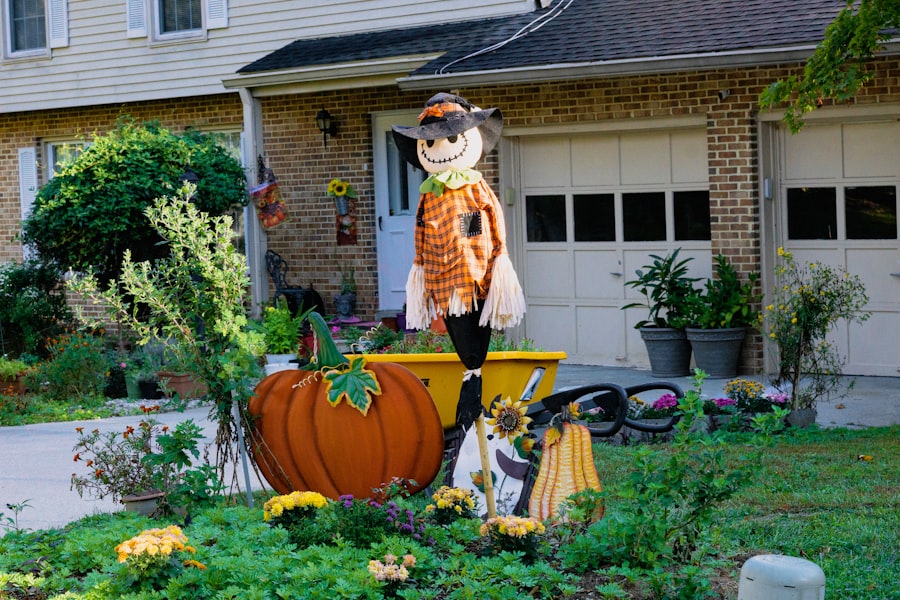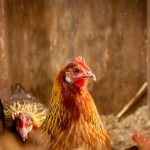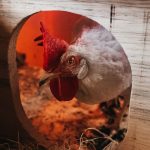Vultures are large scavenging birds of prey that play a crucial role in ecosystems by consuming carrion. However, they can pose a threat to smaller animals, including chickens. Equipped with powerful beaks and sharp talons, vultures can easily injure or kill chickens.
As opportunistic feeders, they may target chickens as an accessible food source. Vultures are intelligent birds capable of learning the patterns and routines of chicken coops, potentially increasing their effectiveness in targeting chickens. Chickens are domesticated birds primarily raised for their eggs and meat.
They are generally docile and lack effective defenses against larger predators like vultures. Chickens are prone to stress, and the presence of vultures can cause agitation and disrupt egg-laying. Furthermore, vultures may transmit diseases to chickens, endangering the health of the entire flock.
Understanding the threat vultures pose to chickens is essential for developing effective flock protection strategies. The relationship between vultures and chickens is characterized by a predator-prey dynamic. Vultures, with their size, strength, and sharp features, have a significant advantage over the smaller, domesticated chickens.
The opportunistic nature of vultures, combined with their ability to learn chicken coop routines, makes them a persistent threat. Chickens, being defenseless and easily stressed, are particularly vulnerable to vulture attacks. This vulnerability extends beyond physical harm, as the mere presence of vultures can negatively impact chicken behavior and productivity.
Comprehending these interactions is crucial for implementing effective measures to safeguard chicken flocks from vulture predation.
Table of Contents
- 1 Creating a Safe Environment for Chickens
- 2 Implementing Visual Deterrents
- 3 Using Sound Deterrents
- 4 Utilizing Physical Barriers
- 5 Removing Attractive Food Sources
- 6 Seeking Professional Help if Necessary
- 7 FAQs
- 7.1 What are vultures and why do they pose a threat to chickens?
- 7.2 What are some effective methods to keep vultures away from chickens?
- 7.3 Are there any legal methods to deter vultures from chickens?
- 7.4 What are some natural deterrents to keep vultures away from chickens?
- 7.5 How can I protect my chickens from vulture attacks?
Key Takeaways
- Vultures pose a threat to chickens as they are known to prey on them
- Creating a safe environment for chickens involves providing secure coops and fencing
- Visual deterrents such as scarecrows and reflective objects can help keep vultures away from chickens
- Sound deterrents like loud noises or predator calls can also be effective in deterring vultures
- Physical barriers such as netting or wire mesh can be used to prevent vultures from accessing chicken coops
- Removing attractive food sources like carcasses or compost can help reduce vulture activity around chicken areas
- Seeking professional help from wildlife experts may be necessary if vulture threats persist
Creating a Safe Environment for Chickens
Securing the Chicken Coop
One of the first steps in creating a safe environment is to ensure that the chicken coop is secure and predator-proof. This includes using sturdy fencing and wire mesh to prevent vultures from gaining access to the coop. Regular inspections of the coop are also necessary to identify and repair any potential entry points.
Providing a Safe and Comfortable Living Space
Providing adequate shelter and roosting areas for the chickens can also help keep them safe from vulture attacks. Additionally, giving the chickens ample space to roam and forage can help reduce their stress levels and make it more difficult for vultures to target them. Providing hiding spots such as bushes or shrubs can give the chickens a place to escape from vultures if they do come near the coop.
Maintaining a Clean and Safe Environment
Keeping the area around the coop clean and free of any potential attractants for vultures, such as food scraps or garbage, is also important in creating a safe environment for chickens. By following these steps, you can help protect your chickens from vulture attacks and provide them with a safe and healthy living environment.
Implementing Visual Deterrents

Implementing visual deterrents can be an effective way to deter vultures from targeting chickens. One common visual deterrent is the use of scarecrows or effigies of predatory birds such as owls or hawks. These effigies can create the illusion of a predator presence, which can deter vultures from approaching the coop.
It is important to regularly move these visual deterrents around the coop to prevent vultures from becoming accustomed to their presence. Another visual deterrent that can be effective in deterring vultures is reflective tape or shiny objects such as CDs or aluminum foil. These reflective materials can create flashes of light that can startle and deter vultures from approaching the coop.
Placing these reflective materials around the perimeter of the coop or in areas where vultures are known to frequent can help create a visual barrier that deters them from targeting the chickens. Implementing visual deterrents such as scarecrows, effigies of predatory birds, and reflective materials can be an effective way to deter vultures from targeting chickens. These visual deterrents create the illusion of a predator presence, which can startle and deter vultures from approaching the coop.
It is important to regularly move these visual deterrents around the coop to prevent vultures from becoming accustomed to their presence. Placing reflective tape or shiny objects such as CDs or aluminum foil around the perimeter of the coop or in areas where vultures are known to frequent can also help create a visual barrier that deters them from targeting the chickens.
Using Sound Deterrents
Using sound deterrents can be an effective way to deter vultures from targeting chickens. One common sound deterrent is the use of distress calls or alarm calls of other birds or animals. These distress calls can signal danger to vultures and deter them from approaching the coop.
It is important to regularly change the distress calls used to prevent vultures from becoming accustomed to them. Another sound deterrent that can be effective in deterring vultures is the use of propane cannons or bird bangers. These devices produce loud noises at regular intervals, which can startle and deter vultures from approaching the coop.
It is important to use these devices responsibly and considerate of neighbors, as they can be disruptive in residential areas. Using sound deterrents such as distress calls or alarm calls of other birds or animals can be an effective way to deter vultures from targeting chickens. These distress calls signal danger to vultures and deter them from approaching the coop.
It is important to regularly change the distress calls used to prevent vultures from becoming accustomed to them. Additionally, using propane cannons or bird bangers that produce loud noises at regular intervals can startle and deter vultures from approaching the coop.
Utilizing Physical Barriers
Utilizing physical barriers can be an effective way to prevent vultures from gaining access to the chicken coop. One common physical barrier is the use of netting or wire mesh over the top of the coop. This can prevent vultures from swooping down and gaining access to the chickens.
It is important to regularly inspect and maintain these physical barriers to ensure they remain effective in deterring vultures. Another physical barrier that can be effective in preventing vulture attacks is the use of electric fencing around the perimeter of the coop. Electric fencing can deliver a mild shock to vultures that come into contact with it, deterring them from approaching the coop.
It is important to use electric fencing responsibly and ensure that it is installed correctly to prevent harm to both vultures and chickens. Utilizing physical barriers such as netting or wire mesh over the top of the coop can be an effective way to prevent vultures from gaining access to the chickens. Regularly inspecting and maintaining these physical barriers is important in ensuring they remain effective in deterring vultures.
Additionally, using electric fencing around the perimeter of the coop can deliver a mild shock to vultures that come into contact with it, deterring them from approaching the coop.
Removing Attractive Food Sources

Dispose of Carcasses and Animal Remains
Removing attractive food sources for vultures can help deter them from targeting chickens. This includes properly disposing of any carcasses or animal remains on your property, as these can attract vultures looking for an easy meal.
Secure Garbage and Food Scraps
It is also important to secure any garbage or food scraps that may attract vultures, as they are opportunistic feeders and will take advantage of any easy food source.
Use Covered Feeders and Clean Up Spills
Another way to remove attractive food sources for vultures is by using covered feeders for your chickens. This can prevent spilled feed from attracting vultures looking for an easy meal. It is also important to regularly clean up any spilled feed or food scraps around the coop to prevent attracting vultures.
Prevention is Key
Removing attractive food sources such as carcasses, animal remains, garbage, and food scraps can help deter vultures from targeting chickens. Properly disposing of any carcasses or animal remains on your property is important in preventing them from attracting vultures looking for an easy meal. Using covered feeders for your chickens and regularly cleaning up any spilled feed or food scraps around the coop can also help prevent attracting vultures.
Seeking Professional Help if Necessary
Seeking professional help may be necessary if you are unable to effectively deter vultures from targeting your chickens on your own. Professional wildlife control experts have experience in dealing with vulture problems and can provide effective solutions tailored to your specific situation. They may use advanced techniques such as trapping and relocating problem vultures, or installing specialized deterrent systems that are beyond the capabilities of most homeowners.
It is important to seek professional help if you are unable to effectively deter vultures from targeting your chickens on your own. Professional wildlife control experts have experience in dealing with vulture problems and can provide effective solutions tailored to your specific situation. They may use advanced techniques such as trapping and relocating problem vultures, or installing specialized deterrent systems that are beyond the capabilities of most homeowners.
In conclusion, understanding the threat that vultures pose to chickens is crucial in developing effective strategies to protect the flock. Creating a safe environment for chickens, implementing visual deterrents, using sound deterrents, utilizing physical barriers, removing attractive food sources, and seeking professional help if necessary are all important steps in protecting chickens from vulture attacks. By taking proactive measures and implementing a combination of these strategies, you can effectively deter vultures from targeting your chickens and ensure their safety and well-being.
If you’re looking for more tips on keeping your chickens safe, check out this article on how to introduce guinea fowl to your chicken coop. Guinea fowl can help keep vultures and other predators away from your chickens, so it’s worth considering adding them to your flock.
FAQs
What are vultures and why do they pose a threat to chickens?
Vultures are large birds of prey that scavenge for food. They can pose a threat to chickens by preying on them and causing stress to the flock.
What are some effective methods to keep vultures away from chickens?
Some effective methods to keep vultures away from chickens include using scare tactics such as visual deterrents, noise makers, and predator decoys. Additionally, providing secure housing for the chickens can help protect them from vulture attacks.
Are there any legal methods to deter vultures from chickens?
In the United States, vultures are protected under the Migratory Bird Treaty Act, so it is important to use non-lethal methods to deter them from chickens. It is illegal to harm or kill vultures without a permit.
What are some natural deterrents to keep vultures away from chickens?
Some natural deterrents to keep vultures away from chickens include using reflective objects, such as shiny tape or CDs, to create a visual disturbance for the vultures. Additionally, using strong-smelling substances, such as ammonia or vinegar, can help deter vultures from the area.
How can I protect my chickens from vulture attacks?
To protect chickens from vulture attacks, it is important to provide secure housing, such as a sturdy coop with a roof, to keep the chickens safe from vultures. Additionally, using scare tactics and natural deterrents can help keep vultures away from the chickens’ living area.
Meet Walter, the feathered-friend fanatic of Florida! Nestled in the sunshine state, Walter struts through life with his feathered companions, clucking his way to happiness. With a coop that’s fancier than a five-star hotel, he’s the Don Juan of the chicken world. When he’s not teaching his hens to do the cha-cha, you’ll find him in a heated debate with his prized rooster, Sir Clucks-a-Lot. Walter’s poultry passion is no yolk; he’s the sunny-side-up guy you never knew you needed in your flock of friends!







